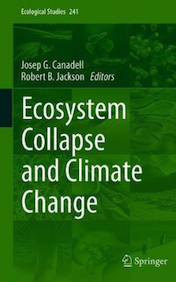Abstract of the chapter:
Climate change is one of the biggest emerging threats to marine biodiversity in the Mediterranean Sea. In this chapter, we focus on the recurrent and large scale mass mortality events (MMEs) induced by marine heatwaves (MHWs), and their immediate and long-term impacts on structural octocorals from highly diverse coralligenous communities. By combining an accurate characterization of present and expected thermal stress conditions in coastal seawater from the surface down to 40 m depth with the state of the art on demography, population genetics, and responses to thermal stress, we analyze the ongoing eco-evolutionary impacts and explore future trajectories of these emblematic Mediterranean communities.
Analysis of satellite-derived sea surface temperature (SST) trends over the three decades revealed a marked increase in MHW events in the Mediterranean Sea. The immediate impacts of MMEs on structural octocoral populations were dramatic decreases of their biomass (~60%). After 10–15 years since the occurrence of a NHW, there were no signs of population recovery, and in fact, a continued decrease was observed due to subsequent marine heatwaves.
The modeling of Mediterranean SST suggests longer and more severe marine heatwaves as the century progresses. In this thermal context, the eco-evolutionary dynamics of the structural octocorals will likely result in an abrupt collapse of impacted populations. Indeed, from the eco-evolutionary interaction, the demographic decline is expected to increase the strength of genetic drift due to the low recolonization capacity of the species. This may lead to an extinction vortex, in spite of the occurrence of potentially thermoresistant individuals suggesting some potential for adaptation to future conditions. The ongoing collapse of Mediterranean habitat-forming octocorals may drive to a functional void with severe consequences for coralligenous communities and services they provide.
The implementation of ambitious mitigation and adaptation policies compliant with the Paris agreement is urgently needed. In this context, we highlight the critical role of marine protected areas and the need for increasing their surface and improving their management.

More details on this chapter
Garrabou, J., Ledoux, J. B., Bensoussan, N., Gómez-Gras, D., & Linares, C. (2021). Sliding Toward the Collapse of Mediterranean Coastal Marine Rocky Ecosystems. In Ecosystem Collapse and Climate Change (pp. 291-324). Springer, Cham.
